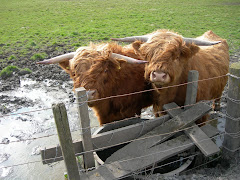If you have ever thought about taking up Angling but don't know where to start, then you are not alone.
There are many 'would be' Anglers out there who never had the benefit or the opportunity to learn how to fish.
Most Anglers began to learn their craft as children - as is the more 'traditional' route into the sport - the knowledge having been passed from a senior family member, or gained by trial and error as a child with school-friends.
For those of you unfortunate enough not to have been inducted into angling as a youngster, finding out where to begin in later life can seem like a daunting prospect.
If you are thinking about taking up the sport just for yourself, or maybe you are looking for a leisure activity that you and your children can participate together, there are a number of ways to gain access into the world of angling.
Firstly, you will need to decide what branch of angling you want to take up. This will more than likely depend on local opportunities. For example, if you live close to the sea, you may want to take up fishing from the beach. If you have a river, canal or lake near to your home then chances are that you may decide to learn to fish at those locations. Of course there are variations on any theme, which may mean you opt for fly-fishing on the local reservoir or lake.
Whatever 'discipline' you choose then you should try to gain some experience of fishing first-hand, before you invest in relatively expensive fishing tackle and equipment.
There are many Angling Clubs and Associations that offer 'taster sessions' for beginners. Finding your local club and contact will be straight-forward, by searching the internet. If you have no luck on the net, phone your local tackle dealer for advice.
Generally 'taster sessions' put on by local Angling Clubs are staffed by very keen and enthusiastic members, blessed with infinite patience - something you will need to be an Angler - and very likely go out of their way to provide you with useful advice and assistance.
If you feel that you want to progress from the 'taster session', the easiest way to gain knowledge and experience is to invest in a starter session or two with local Angling coach. You can use the same process to locate a professional coach as you used to find your local Angling Club. If you choose to use a professional coach, they will also advise you on the tackle and equipment you need to get you going.
If you prefer to learn under your 'own steam' rather than invest in lessons, then the next step is to gain 'local' information on suitable venue to learn to fish. You can obtain this vital piece of information from your local tackle dealer.
Walking into a tackle shop and plucking up the courage to ask for help and advice is not an easy step to make, particularly if the store is busy with anglers browsing the shelves and racks, and with other anglers standing at the counter in conversation with the staff about their recent fishing exploits. Try and choose a day and a time during the week when the shop is not too busy. This will allow the staff to spend more time assisting you, rather than trying to have a conversation between serving customers.
When you have identified your local tackle dealer, give them a call and find out when is their least busy time. Once you have found out the best time to visit, ask for the name of the person you should speak to about getting advice on taking up angling. In effect you are making an appointment, which will not be of 'one-way' benefit as the tackle dealer will be investing their time, hoping to retain you as a customer for the future.
If you have used a professional coach to gain some knowledge, you should go to the local tackle dealer equipped with a list of things you need for your first venture into the world of angling. If you used the 'taster session' with your local club, and decide not to use coach, make sure you write down a list of what you need to get you started before you leave.
Remember that the vast array of rods, reels, line, floats, weights, hooks, bait, nets etc on display in the store are there to catch Anglers, rather than fish!
Most Anglers like to 'collect', without even realising it. They are like kids in a sweetshop really. Any spare cash will likely be spent on the myriad of fishing tackle on display, and the chances are most of it will never get used 'in anger'!
When you venture into the tackle store, be sure to stick to the list you have carefully prepared. Don't invest in the most expensive option available, or the cheapest. Don't fall into the trap of buying 'on-line' at auction either, as there is an awful lot of poor quality fishing tackle sold to the unwary over the internet.
Ask your dealer for advice on good quality, reliable tackle, suitable for beginner. If you look after it, you can always pass it on to someone else when you graduate to more sophisticated, higher quality tackle in the future.
Now you are fully equipped and ready to go. By now you should have received a little experience and knowledge before venturing out to your chosen fishing location. So what next?
Remember to check with your local tackle dealer if you require license to fish. This will depend on the country you live in, or the type of fishing you intend to start off with.
Make sure you think about safety. If you are going fishing alone, ensure someone knows where you are fishing and when you are due back.
You are now ready to go fishing. As Anglers say, "tight lines"!
Bill Bailey is a freelance writer and contributor to the Anglers Social Network site [http://www.anglingbook.com] and [http://www.schnafflehound.com] Bill is a keen all round leisure angler.
Article Source: http://EzineArticles.com/?expert=Bill_Bailey
Subscribe to:
Post Comments (Atom)












No comments:
Post a Comment